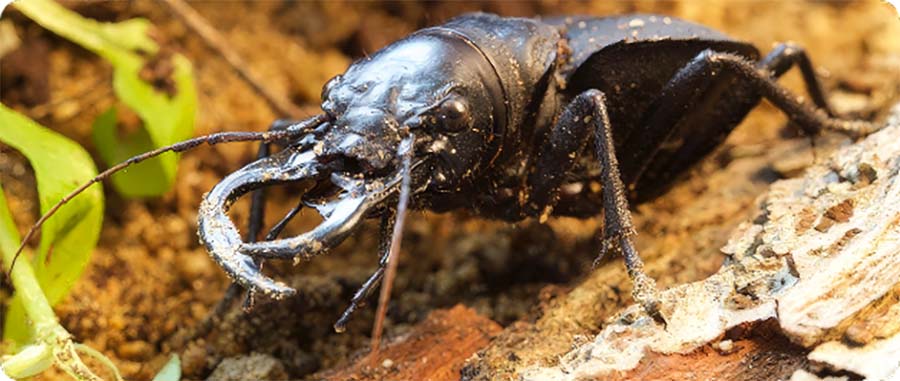Unique atlases with photos. Africa is home to a remarkable diversity of beetle species, with estimates suggesting that over 30,000 species can be found across the continent.
Book novelties:
Prioninae of the World I., Cerambycidae of the Western Paleartic I. June Bugs,
Types of beetles insects
New E-Book: Ground Beetles, Tiger Beetles, Longhorn Beetles, Jewel Beetles, Stag Beetles, Carpet Beetles, Scarab Beetles, Rhinoceros Beetles
Start Shopping, Start Saving – prices from $3 USD
This diversity is attributed to the continent’s varied ecosystems, ranging from arid deserts to lush rainforests, each providing unique habitats that support different beetle populations. Book about Beetles

Africa’s Titanic Insect Colossus
Tiger Beetles of Africa
Among the most notable families of beetles found in Africa are the Scarabaeidae (scarab beetles), Cerambycidae (longhorn beetles), and Chrysomelidae (leaf beetles). The Scarabaeidae family is particularly significant, as many species play essential roles in nutrient recycling and soil aeration through their dung-rolling behavior. In fact, studies indicate that dung beetles can remove up to 80% of dung from grazing areas, which is crucial for maintaining healthy ecosystems.
We recommend: jeweled beetles, ground beetles, tiger beetles, longhorn beetles, goliath beetle, stag beetle, carpet beetles
The Cerambycidae family, known for their elongated bodies and long antennae, includes species that are important for wood decomposition and forest health. Some species are also economically significant, as they can be pests of timber and agricultural crops. The Chrysomelidae family, on the other hand, includes many species that are herbivorous and can impact agricultural productivity, with certain species known to cause significant damage to crops.
In terms of conservation, many African beetle species are threatened by habitat loss, climate change, and pollution. The International Union for Conservation of Nature (IUCN) has classified several species as vulnerable or endangered, highlighting the need for conservation efforts to protect their habitats and ensure their survival. Research indicates that preserving biodiversity is critical, as it contributes to ecosystem resilience and the provision of ecosystem services.
For those interested in studying African beetles, various resources are available, including field guides and interactive e-books that provide detailed information on species identification, behavior, and ecology. Engaging with these educational materials can enhance understanding and appreciation of the ecological roles that beetles play in African ecosystems.
In conclusion, the beetles of Africa represent a vital component of the continent’s biodiversity. Their ecological significance, coupled with the challenges they face, underscores the importance of ongoing research and conservation efforts to protect these fascinating insects and their habitats.
Beetles of Africa
Unique pictorial atlases for identifying Beetles:
(2020) Tiger Beetles of the World, Cicindelidae, Illustrated guide to the genera
(2023) Tiger Beetles of Africa, Cicindelidae, Geographical guide to the family Cicindelidae
(2024) Tiger Beetles of Orient, Cicindelidae, Geographical guide to the family Cicindelidae
(2022) Ground Beetles of Africa, Afrotropical Region
(2022) Jewel Beetles of the World, Buprestidae, Illustrated guide to the Superfamily Buprestoidea
(2008) The Prionids of the World, Prioninae, Illustrated catalogue of the Beetles
(2010) The Prionids of the Neotropical region, Prioninae, Illustrated catalogue of the Beetles
Beetles of Africa
Beetles of Africa: Diversity, Ecology, and Human Interactions
The beetle fauna of Africa presents a complex tapestry of ecological roles, taxonomic diversity, and human impacts. From the specialized feeding behaviors of flea beetles to the critical ecosystem services of dung beetles, these insects play pivotal roles in shaping the continent’s ecosystems. This report synthesizes current knowledge on African beetle diversity, their ecological significance, and the challenges posed by human activities, drawing on recent studies and taxonomic insights.
Taxonomic Diversity and Distribution
Flea Beetles (Alticini) and Latitudinal Patterns
Flea beetles (Coleoptera: Chrysomelidae: Alticini) are among the most ecologically significant phytophagous insects in Africa. A continental-scale analysis reveals 96 genera distributed across Africa, with distinct latitudinal patterns. The number of genera follows an up-and-down sinusoidal trend, peaking in Mediterranean Africa (40–30° N) and the equatorial belts (5° N–5° S), while declining in arid zones like the Sahara Desert (30–20° N) and southern deserts (Namib and Kalahari). This distribution correlates with vegetation diversity and bioclimatic factors, such as stable temperatures and high precipitation during warm months.
Endemic and Widespread Components
The African flea beetle fauna comprises three components:
Sub-Saharan endemics: 44 genera restricted to sub-Saharan Africa, with peak richness in equatorial belts.
Mediterranean Africa: 11 genera shared with Europe and other regions, none endemic to this zone.
Pan-African genera: 10 widespread species occurring across the continent. Beetles of Africa
This partitioning highlights the interplay between biogeography and ecological specialization, with endemic genera concentrated in regions with stable tropical climates.
Dung Beetles and Their Functional Groups
Beetles of Africa
Dung beetles (Scarabaeidae: Scarabaeinae) are divided into four functional groups:
Telecoprids: Roll and bury dung balls for feeding and reproduction.
Endocoprids: Lay eggs directly in dung piles.
Paracoprids: Bury dung beneath the soil.
Kleptocoprids: Steal dung balls from telecoprids.
These beetles are critical for nutrient cycling, soil health, and reducing disease transmission by decomposing animal waste. Their activity peaks in summer, with termites taking over during winter dormancy.
Key Beetle Families in Africa
Several beetle families dominate African ecosystems:
Scarabaeidae: Includes dung beetles and scarabs, vital for ecosystem services.
Cerambycidae: Longhorn beetles, often associated with wood-boring behaviors.
Chrysomelidae: Leaf beetles, with flea beetles (Alticini) being a notable tribe.
Nitidulidae and Staphylinidae: Common in agroecosystems, indicating adaptability to human-modified habitats.
Ecological Roles and Interactions
Dung Beetles and Large Herbivores
Dung beetles rely on large mammalian herbivores for resources, with elephant dung being particularly important for maintaining beetle diversity. A study in transformed landscapes found that:
Taxonomic and phylogenetic richness of dung beetles closely tracks large herbivore diversity.
Functional connectivity between remnant habitats in modified landscapes preserves beetle-mammal interactions.
This dependency underscores the fragility of these interactions in fragmented ecosystems.
Beetle Responses to Vegetation and Land Use
Agricultural landscapes in Ivory Coast (e.g., cocoa plantations, mixed-crop fields) support higher beetle abundance and diversity compared to primary forests. Families like Chrysomelidae thrive in these environments, suggesting adaptability to human-modified habitats. However, teak plantations and multi-species plantations have lower beetle richness, indicating that monoculture systems reduce ecological complexity.
Invasive Species: The African Black Beetle
Heteronychus arator, native to Africa, has become an invasive pest in Australia and New Zealand. Adults and larvae damage pastures, cereals, and horticultural crops, with larvae feeding on plant roots. Control measures include delayed autumn sowing and insecticide-treated seeds. This highlights the ecological and economic risks of beetle invasions.
Human Impacts and Conservation Challenges
Habitat Transformation and Biodiversity Loss
Land-use changes, such as deforestation and monoculture farming, disrupt beetle communities. For example:
Primary forests in Ivory Coast have low beetle abundance compared to cultivated landscapes.
Jacobsoniidae beetles, a rare family, are now restricted to fragmented coastal forests, with Holocene copal records indicating potential local extinctions due to human activity.
Climate and Bioclimatic Factors
Flea beetles’ latitudinal distribution is influenced by bioclimatic variables, such as stable temperatures and high precipitation during warm months. Climate change could disrupt these patterns, potentially altering beetle ranges and host-plant interactions.
Conservation Priorities
Protected areas: Essential for maintaining large herbivore diversity, which in turn supports dung beetle communities.
Habitat connectivity: Critical for preserving beetle-mammal interactions in transformed landscapes.
Invasive species management: Early detection and control of pests like Heteronychus arator to prevent ecological and agricultural damage.
Case Studies: Insights from Specific Taxa
Jacobsoniidae: A Cryptic Family’s African Record
The discovery of Derolathrus cavernicolus in Tanzanian copal (210 ± 30 BP) marks the first record of Jacobsoniidae in Africa. This family, previously known from the Americas, Asia, and Australia, highlights the importance of resinous substrates in preserving small, elusive beetles. Their scarcity in modern ecosystems may reflect habitat loss or undetected survivals in fragmented coastal forests.
Dung Beetles as Ecological Engineers
Telecoprid dung beetles exhibit intricate reproductive strategies, such as stacking multiple dung balls in underground chambers to ensure larval survival. This behavior ensures efficient resource use and reduces competition, underscoring their role in maintaining ecosystem balance.
Synthesis and Future Directions
African beetles exemplify the intricate relationships between biodiversity, ecosystem services, and human activities. Key findings include:
Taxonomic richness is shaped by vegetation diversity and bioclimatic stability, with endemic genera concentrated in equatorial and temperate zones.
Functional dependencies exist between dung beetles and large herbivores, emphasizing the need to conserve megafauna for beetle diversity.
Human-modified habitats can support beetle populations but require careful management to avoid oversimplification of ecosystems.
Invasive species and habitat fragmentation pose significant threats, necessitating proactive conservation strategies.
Future research should focus on:
Long-term monitoring of beetle communities in changing climates.
Ecological restoration of fragmented habitats to preserve beetle-mammal interactions.
Biocontrol strategies for invasive beetles like Heteronychus arator.
By addressing these priorities, Africa’s beetle diversity can continue to underpin ecosystem resilience in a rapidly changing world.

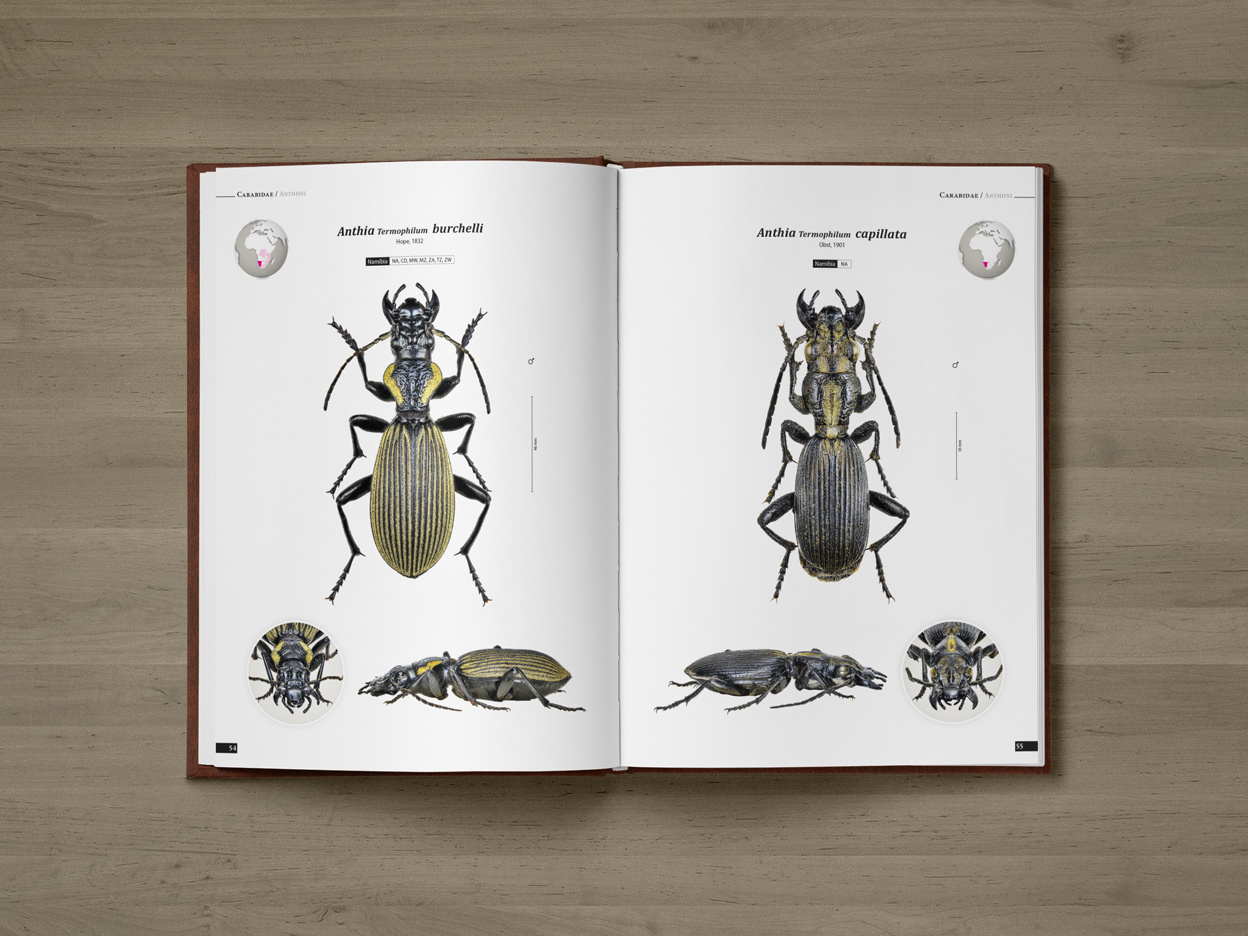


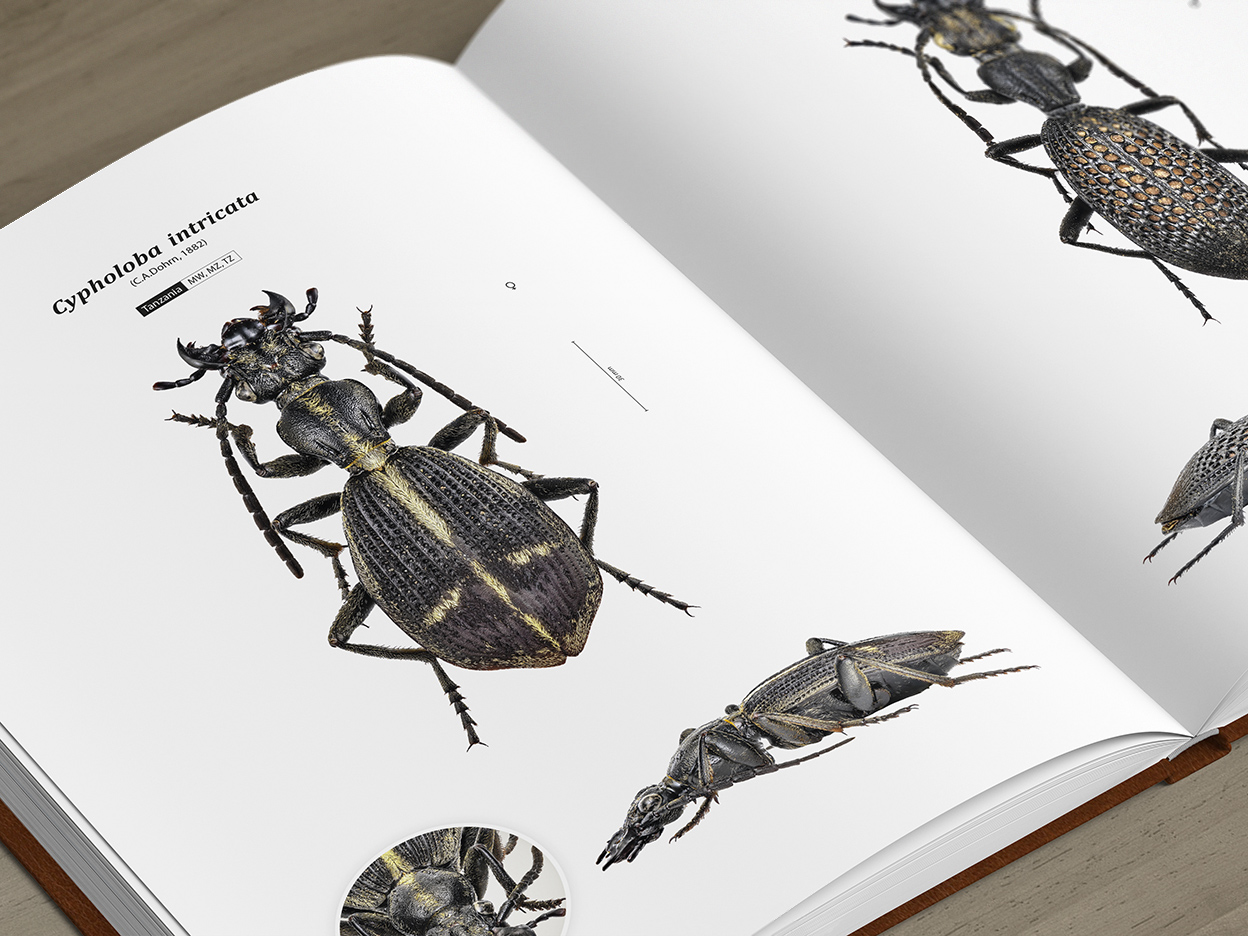
-
 Tiger Beetles of Orient€ 129.00
Tiger Beetles of Orient€ 129.00 -
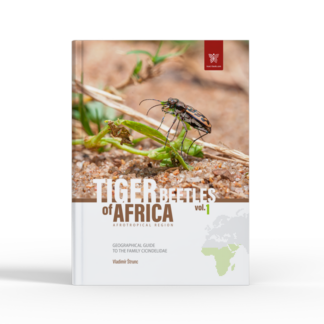 Tiger Beetles of Africa€ 129.00
Tiger Beetles of Africa€ 129.00 -
 The Prionids of the WorldProduct on sale€ 39.00
The Prionids of the WorldProduct on sale€ 39.00 -
 Ground Beetles of Africa (2nd edition)€ 136.00
Ground Beetles of Africa (2nd edition)€ 136.00 -
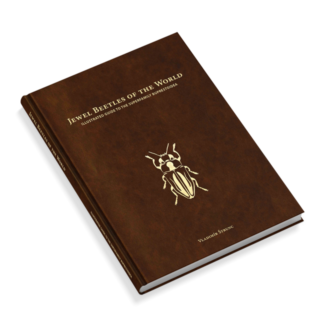 Jewel Beetles of the World€ 105.00
Jewel Beetles of the World€ 105.00 -
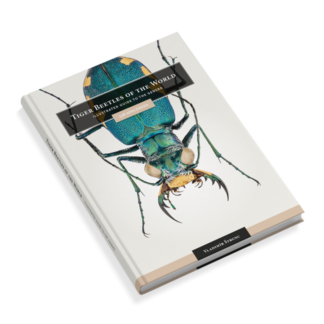 Tiger Beetles of the World€ 109.00
Tiger Beetles of the World€ 109.00
